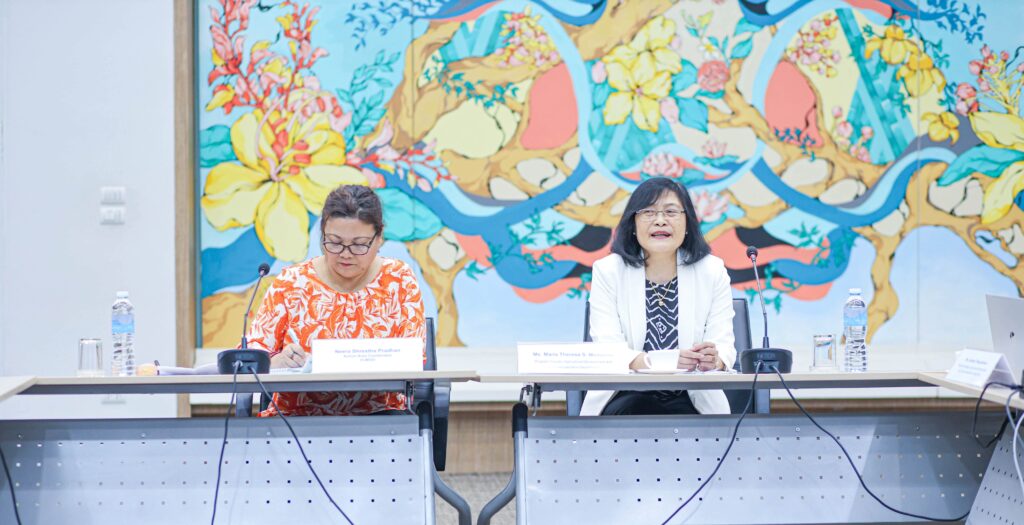Khon Kaen, Thailand, October 7, 2024 – The Mekong Institute (MI) welcomed a delegation from the International Centre for Integrated Mountain Development (ICIMOD) and the Stockholm Environment Institute (SEI) for a learning exchange visit on October 7, 2024. The visit aimed to foster collaboration and mutual learning between the organizations, focusing on sustainable development and transboundary water management.
The delegation, comprising 17 participants from Nepal, India, Bhutan, Bangladesh, Pakistan, China, and Thailand, was eager to explore MI’s work in agricultural development, sustainable energy, and environmental initiatives. Discussions centered on MI’s extensive experience in promoting climate-smart agriculture technologies, transboundary water cooperation, and sustainable development within the Lower Mekong Basin.
Ms. Maria Theresa S. Medialdia, Director of MI’s Agricultural Development and Commercialization Department, along with key staff members, presented several of MI’s flagship initiatives, including:
- The Triangular Cooperation Project for sustainable development in the Lower Mekong Basin, with a focus on the Water-Energy-Food (WEF) Nexus under the ROK-UNOSSC Facility: Phase 3.
- Climate-smart agriculture technologies and innovations aimed at increasing resilience in the Lower Mekong countries.
- Transboundary water cooperation efforts to ensure effective water management.
- The PROSAFE project, promoting food safety across the region.
Representatives from ICIMOD and SEI also shared insights into their organizational priorities and initiatives. SEI, a prominent research institute, bridges science, policy, and practice to advance sustainable development. With its Asia Center in Bangkok, SEI is committed to addressing climate change, disaster risk reduction, and water resources management. Through its Water Resources Management Cluster, SEI focuses on the Water-Energy-Food (WEF) nexus, leveraging nature-based solutions to mitigate water-related challenges.
ICIMOD, headquartered in Kathmandu, Nepal, works across the Hindu Kush Himalayas to promote sustainable development and resilience in this fragile mountain ecosystem. ICIMOD’s initiatives, such as the Indus and Koshi Basin Programs, seek to improve water management and reduce climate vulnerabilities by combining local knowledge with scientific research and collaborative action. Through a focus on transboundary cooperation, ICIMOD strengthens policies and frameworks supporting equitable water use and conservation, thereby contributing to the security and well-being of communities in the region.
The exchange visit concluded with discussions on future collaboration opportunities among MI, ICIMOD, and SEI, emphasizing shared learning, and best practices. Participants also discussed avenues for further engagement, including sharing methodologies and capacity-building approaches, policy guidelines, and knowledge tools, as well as future platforms for exchanging experiences across regions.








